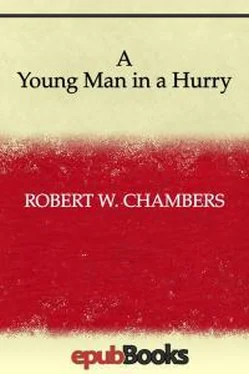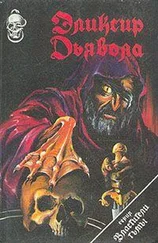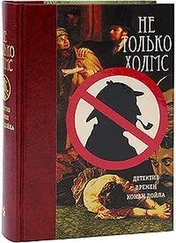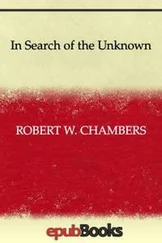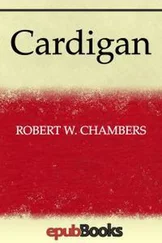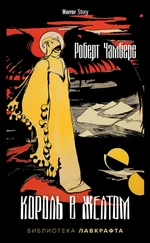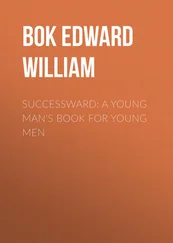Роберт Чамберс - A Young Man in a Hurry
Здесь есть возможность читать онлайн «Роберт Чамберс - A Young Man in a Hurry» весь текст электронной книги совершенно бесплатно (целиком полную версию без сокращений). В некоторых случаях можно слушать аудио, скачать через торрент в формате fb2 и присутствует краткое содержание. Год выпуска: 2014, Издательство: epubBooks Classics, Жанр: Классическая проза, на английском языке. Описание произведения, (предисловие) а так же отзывы посетителей доступны на портале библиотеки ЛибКат.
- Название:A Young Man in a Hurry
- Автор:
- Издательство:epubBooks Classics
- Жанр:
- Год:2014
- ISBN:нет данных
- Рейтинг книги:5 / 5. Голосов: 1
-
Избранное:Добавить в избранное
- Отзывы:
-
Ваша оценка:
- 100
- 1
- 2
- 3
- 4
- 5
A Young Man in a Hurry: краткое содержание, описание и аннотация
Предлагаем к чтению аннотацию, описание, краткое содержание или предисловие (зависит от того, что написал сам автор книги «A Young Man in a Hurry»). Если вы не нашли необходимую информацию о книге — напишите в комментариях, мы постараемся отыскать её.
A Young Man in a Hurry — читать онлайн бесплатно полную книгу (весь текст) целиком
Ниже представлен текст книги, разбитый по страницам. Система сохранения места последней прочитанной страницы, позволяет с удобством читать онлайн бесплатно книгу «A Young Man in a Hurry», без необходимости каждый раз заново искать на чём Вы остановились. Поставьте закладку, и сможете в любой момент перейти на страницу, на которой закончили чтение.
Интервал:
Закладка:
"Is that the way you regard it, Santry?" asked Burleson. "Is that the way these people regard private property?"
"I guess it is," replied the ragged man, resuming his seat on the flour–barrel. "I cal'late the Lord A'mighty fashioned His wild critters f'r to peramble round about, offerin' a fair mark an' no favor to them that's smart enough to git 'em with buck, bird–shot, or bullet. Live wild critters ain't for sale; they never was made to buy an' sell. The spryest gits 'em—an' that's all about it, I guess, Mister Burleson."
A hard–faced young man leaning against the counter, added significantly: "We talked some to Grier, an' he sold out. He come here, too, just like you."
The covert menace set two spots of color deepening in young Burleson's lean cheeks; but he answered calmly:
"What a man believes to be his own he seldom abandons from fear of threats."
"That's kinder like our case," observed old man Santry, chewing vigorously.
Another man leaned over and whispered to a neighbor, who turned a grim eye on Burleson without replying.
As for Burleson and his argument, a vicious circle had been completed, and there was little chance of an understanding; he saw that plainly, but, loath to admit it, turned towards old man Santry once more.
"If what has been common rumor is true," he said, "Mr. Grier, from whom I bought the Spirit Lake tract, was rough in defending what he believed to be his own. I want to be decent; I desire to preserve the game and the timber, but not at the expense of human suffering. You know better than I do what has been the history of Fox Cross–roads. Twenty–five years ago your village was a large one; you had tanneries, lumber–mills, paper–mills—even a newspaper. To–day the timber is gone, and so has the town except for your homes—twenty houses, perhaps. Your soil is sand and slate, fit only for a new forest; the entire country is useless for farming, and it is the natural home of pine and oak, of the deer and partridge."
He took one step nearer the silent circle around the stove. "I have offered to buy your rights; Grier hemmed you in on every side to force you out. I do not want to force you; I offer to buy your land at a fair appraisal. And your answer is to put a prohibitive price on the land."
"Because," observed old man Santry, "we've got you ketched. That's business, I guess."
Burleson flushed up. "Not business; blackmail, Santry."
Another silence, then a man laughed: "Is that what they call it down to York, Mr. Burleson?"
"I think so."
"When a man wants to put up a skyscraper an' gits all but the key–lot, an' if the owner of the key–lot holds out for his price, do they call it blackmail?"
"No," said Burleson; "I think I spoke hastily."
Not a sound broke the stillness in the store. After a moment old man Santry opened his clasp–knife, leaned forward, and shaved off a thin slice from the cheese on the counter. This he ate, faded eyes fixed on space. Men all around him relaxed in their chairs, spat, recrossed their muddy boots, stretching and yawning. Plainly the conference had ended.
"I am sorry," said young Burleson; "I had hoped for a fair understanding."
Nobody answered.
He tucked his riding–crop under one arm and stood watching them, buttoning his tan gloves. Then with the butt of his crop he rubbed a dry spot of mud from his leather puttees, freed the incrusted spurs, and turned towards the door, pausing there to look back.
"I hate to leave it this way," he said, impulsively. "I want to live in peace with my neighbors. I mean to make no threats—but neither can I be moved by threats…. Perhaps time will aid us to come to a fair understanding; perhaps a better knowledge of one another. Although the shooting and fishing are restricted, my house is always open to my neighbors. You will be welcome when you come—"
The silence was profound as he hesitated, standing there before them in the sunshine of the doorway—a lean, well–built, faultless figure, an unconscious challenge to poverty, a terrible offence to their every instinct—the living embodiment of all that they hated most in all the world.
And so he went away with a brief "Good–morning," swung himself astride his horse, and cantered off, gathering bridle as he rode, sweeping at a gallop across the wooden bridge into the forest world beyond.
The September woods were dry—dry enough to catch fire. His troubled eyes swept the second growth as he drew bridle at a gate set in a fence eight feet high and entirely constructed of wire net interwoven with barbed wire, and heavily hedged with locust and buck–thorn.
He dismounted, unlocked the iron gate, led his horse through, refastened the gate, and walked on, his horse following as a trained dog follows at heel.
Through the still September sunshine ripened leaves drifted down through interlaced branches, and the whispering rustle of their fall filled the forest silence. The wood road, carpeted with brilliant leaves, wound through second growth, following the edge of a dark, swift stream, then swept westward among the pines, where the cushion of brown needles deadened every step, and where there was no sound save the rustle of a flock of rose–tinted birds half buried in the feathery fronds of a white pine. Again the road curved eastward; skirting a cleft of slate rocks, through which the stream rushed with the sound of a wind–stirred woodland; and by this stream a man stood, loading a rusty fowling–piece.
Young Burleson had retained Grier's keepers, for obvious reasons; and already he knew them all by name. But this man was no keeper of his; and he walked straight up to him, bidding him a rather sharp good–morning, which was sullenly returned.
Then Burleson told him as pleasantly as he could that the land was preserved, that he could not tolerate armed trespassing, and that the keepers were charged to enforce the laws.
"It is better," he said, "to have a clear understanding at once. I think the law governing private property is clearly set forth on the signs along my boundary. This preserve is posted and patrolled; I have done all I could to guarantee public rights; I have not made any application to have the public road closed, and I am perfectly willing to keep it open for public convenience. But it is not right for anybody to carry a gun in these preserves; and if it continues I shall surely apply for permission to close the road."
"I guess you think you'll do a lot o' things," observed the man, stolidly.
"I think I will," returned Burleson, refusing to take offence at the insolence.
The man tossed his gun to his shoulder and slouched towards the boundary. Burleson watched him in silence until the fellow reached the netted wire fence, then he called out.
"There is a turnstile to the left."
But the native deliberately drew a hatchet from his belt, opened the wire netting with one heavy slash, and crawled through. Then wheeling in his tracks outside, he cursed Burleson and shook his gun at him, and finally slouched off towards Fox Cross–roads, leaving the master of the forest a trifle white and quivering under the cutting curb of self–control.
Presently his spasmodic grip on the riding–crop relaxed; he looked about him with a long, quiet breath, flicked a burr from his riding–breeches, and walked on, head lowered and jaw set. His horse followed at his heels.
A mile beyond he met a keeper demolishing a deadfall along the creek, and he summoned him with a good–humored greeting.
"Rolfe, we're headed for trouble, but it must not come—do you hear? I won't have it if it can be avoided—and it must be avoided. These poor devils that Grier hemmed in and warned off with his shot–gun patrol are looking for that same sort of thing from me. Petty annoyance shall not drive me into violence; I've made it plain to every keeper, every forester, every man who takes wages from me. If I can stand insolence from people I am sorry for, my employés can and must…. Who was that man I met below here?"
Читать дальшеИнтервал:
Закладка:
Похожие книги на «A Young Man in a Hurry»
Представляем Вашему вниманию похожие книги на «A Young Man in a Hurry» списком для выбора. Мы отобрали схожую по названию и смыслу литературу в надежде предоставить читателям больше вариантов отыскать новые, интересные, ещё непрочитанные произведения.
Обсуждение, отзывы о книге «A Young Man in a Hurry» и просто собственные мнения читателей. Оставьте ваши комментарии, напишите, что Вы думаете о произведении, его смысле или главных героях. Укажите что конкретно понравилось, а что нет, и почему Вы так считаете.
